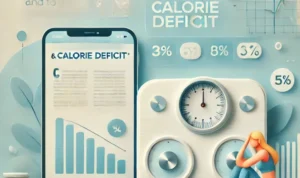Table of Contents
ToggleAluminum foil is widely used in the food packaging industry due to its malleable and non-stick characteristics. If you have accidentally eaten an aluminum sheet along with your Big Mac, don’t panic, as accidentally swallowed foil is passed undigested through your stomach. However, if you eat non-edible aluminum foil in large quantities, it can pose serious health risks.
Now that you are relaxed as the chances of death with the foil are rare, let’s explore in detail what happens if you accidentally eat aluminum foil, what are the potential risks, and what is the first aid for this swallowing.
Aluminum Foil for Food Packaging
Aluminum (Al) is a naturally occurring metal found in many foods. It is an essential part of a healthy eating lifestyle. Aluminum foil, commonly known as iron foil, is prepared in metal leaves. Thin rolls of foil are available in the market, and almost 75% of the manufactured quantity is used in the food and chemical industry for packaging purposes. The foil contains 98.5% aluminum, while the rest is silicone and iron blends.
It’s important to note that some foods, especially those that are acidic or spicy, can cause small amounts of aluminum to leach into the food during storage or cooking. While the quantities are generally minimal, long-term exposure can raise health concerns, particularly for individuals who use aluminum foil regularly.
With the food securely and safely packed in aluminum foil comes the risk of accidental swallowing, especially in children. Accidental consumption of small quantities can not cause any health damage as it’s hard and passes out of your body undigested. But swallowing large quantities can be dangerous.
How Much Aluminium is Safe?
The Agency for Toxic Substances and Disease Registry of the US Department of Health and Human Services defines the minimum risk level for oral aluminum intake at approx 1mg/kg/ day. Exceeding the quantity of swallowed aluminum foil can cause severe health risks.
What Happens If You Accidentally Eat Aluminum Foil
Aluminum is naturally present in foods with a ratio of 5mg/ kg. Processed foods contain higher percentages of the metal. Along with these naturally present quantities, if you increase the aluminum ingestion by eating the foil, the end results are some severe risks.
Aluminum Toxicity
Swallowing aluminum foil in bulk can result in metal toxicity. This toxic ingestion can cause genetic and physiological alterations in the body, resulting in some severe disorders like ischemic shock, cell necrosis and apoptosis, sclerosis, IBD, etc. Aluminum intoxication is very rare, but continuously swallowing large quantities of the foil can raise the risks.
Iron Deficiency Anemia
Continuous swallowing of aluminum foil can affect the body’s iron-absorbing properties, leading to iron deficiency anemia. It can also damage red blood cells, reducing their lifespan which thus results in blood deficiency. The symptoms to this mishap include fatigue, breathlessness, dizziness, and pale skin.
Throat Damage
Aluminum foil has very sharp edges that can cause lacerations in the throat, mouth, and digestive tract when eaten accidentally. The inflammation or the irritation of the throat can result in ulcers and lesions in the mouth. You can also feel discomfort in swallowing food and water when choked with large foil pieces. In very rare cases, accidental eating of aluminum foil can result in perforations of the throat and scarring.
Intestinal Blockage
One of the serious complications resulting from aluminum foil swallowing is intestinal blockage and bowel obstruction. You can have difficulty passing stool or gas when facing stomach blockage. The symptoms can include abdominal pain, nausea, abdominal distension, and tenderness.
Alzheimer’s disease
Scientific studies do not show any direct relation between aluminum and Alzheimer’s disease, but limited evidence suggests that patients with Alzheimer’s disease have a high aluminum percentage in their brains. Aluminum ingestion beyond safe quantities plays a role in the development of this neurological disease, but the exact role in the disease’s progression and development is yet to be investigated. Aluminum intoxication is also linked with other neurological syndromes.
Caution: Be extra conscious of wrapping your food in aluminum foil when you are pregnant. Slow and steady accumulation over the days can affect your baby’s development.
Kidney Diseases
If you are already suffering from kidney diseases and have an increased amount of aluminum in your body due to accidental intake, the risks double. Normally, aluminum is exreted from the intestinal system thorugh kidneys but the presence of renal impairement delays this. People on dialysis or end stage renal disease can also develop anemia and other related diseases due to the buildup of aluminum in the body.
First Aid for Swallowing Aluminum Foil
Most small pieces of aluminum foil pass through the digestive system without issue, but larger pieces or frequent ingestion can lead to complications like gastrointestinal obstruction. Certain groups, such as children, pregnant women, and individuals with digestive conditions, are at higher risk for issues like airway obstruction, tonsillitis, or increased aluminum accumulation in the body.
Nobody can delay the storm, but we can manage it effectively to minimize the dangers. Don’t panic! It is the time to think wisely. Follow these first-aid steps to manage accidental swallowing;
- Drink plenty of water: Small quantities of aluminum foil swallowing will not impose any serious health risks so just drink plenty of water to move the foil down to the digestive tract. It is hard and can’t be broken by the digestive system so it’ll pass out of the body as such.
- Give Abdominal Thrusts: The blockage in the throat with the foil can cause discomfort and vomiting, so give abdominal thrusts to the affected person so that he either throws the foil out or passes it down.
- Seek Expert Advice: If you are feeling a laceration or discomfort in your throat that is affecting your food or water intake, consult a doctor immediately.
Wrapping Food In Foil Can be Dangerous! Prevention is Needed
Prevention is always the key! You can prevent accidental eating of aluminum foil by following a few simple yet effective steps;
- Children are more prone to accidental intake of aluminum foil. Therefore, keep it out of the reach of children.
- Use foil with extra care. Avoid crumpling or tearing the foil, as the sharp edges can lead to cuts in the throat or stomach.
- You can use alternative wrapping papers such as parchment or baking paper.
- Keep the foil and the food at a good enough distance while storing to avoid any accidental swallowing.
- Reduce the anxiety kicks while eating by unwrapping the food completely from the foil before beginning.
Conclusion
Aluminum foil is a widely acceptable wrapping technique that keeps food fresh. If you accidentally swallow a small quantity of the foil, relax because it doesn’t cause any side effects. However, if you eat large pieces of the foil repetitively, you can end up in a hospital emergency due to aluminum intoxication. Learn to balance the seesaw with prevention and benefits sitting on either side.
FAQs
Is aluminum foil toxic to the body?
Aluminum foil ingestion in small quantities is not toxic to the body. However, swallowing large quantities on a regular basis can result in aluminum poisoning and related adverse effects.
What to do if aluminium foil is stuck in the throat?
Drink plenty of water to let the foil pass your throat. If the size of the foil is very large, abdominal thrusts can help to remove the struck pieces from your throat.
What should I do if I ate foil?
If the quantity of aluminum foil swallowed is very low, don’t panic and just be extra cautious next time. But if you have eaten large quantities of the foil, look for the symptoms. If you have a kidney disease or face any serious side effects, consult a doctor immediately.






